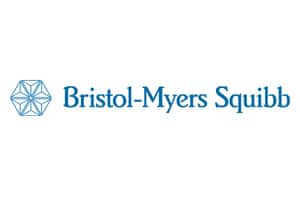
Bristol-Myers Squibb has expanded its development programme with Nektar, sending shares in the biotech soaring by nearly 20%.
The new collaboration will expand testing of Nektar’s bempegaldesleukin (bempeg) and BMS’ PD-1 inhibitor Opdivo (nivolumab) in to five types of cancer, up from the previous three.
Bempeg is a CD122-preferential IL-2 pathway agonist, designed to activate and proliferate certain cancer-killing immune cells.
Currently, the partners are testing bempeg and Opdivo in three ongoing registrational trials in first-line metastatic melanoma, first-line chemotherapy-ineligible metastatic urothelial cancer and first-line metastatic renal cell carcinoma.
The expanded programme will include new testing in adjuvant melanoma and in muscle-invasive bladder cancer. The study costs for these new trials will be shared across both companies, as per the terms of the original agreement.
BMS is also set to independently conduct and fund a phase 1/2 dose optimisation and expansion study in first-line non-small cell lung cancer NSCLC with the bempeg and Opdivo combination.
 “Bristol-Myers Squibb and Nektar view bempeg as an important asset and IL-2 as an important target,” said Fouad Namouni (pictured left), head of oncology development, BMS.
“Bristol-Myers Squibb and Nektar view bempeg as an important asset and IL-2 as an important target,” said Fouad Namouni (pictured left), head of oncology development, BMS.
“We look forward to expanding the registrational programme currently underway for bempeg and are committed to the development of potential new combination therapies to address the unmet needs of patients living with cancer,” he added.
While Opdivo was the first PD-1 inhibitor to reach the market in Europe and Japan, Merck & Co’s Keytruda’s earlier entry in the US allowed it to top Opdivo in terms of sales.
Keytruda has mainly established its dominance thanks to its efficacy in NSCLC, an indication that Opdivo has found hard to crack.
As an answer to Opdivo’s apparent inability to demonstrate benefit in this area as a monotherapy, BMS has looked to combination therapies of its PD-1 inhibitor.
In addition to the Nektar collaboration and research, BMS has been testing Opdivo with its own CTLA4 blocker Yervoy (ipilimumab).
It recently announced positive results from a phase 3 trial testing the combination in NSCLC, in which Opdivo/Yervoy met the primary trial endpoint of superior overall survival.
Although the results were promising, BMS could find it hard to convince clinicians that the combination treatment is superior, given that the Keytruda regimen is already widely prescribed for newly-diagnosed NSCLC patients.




